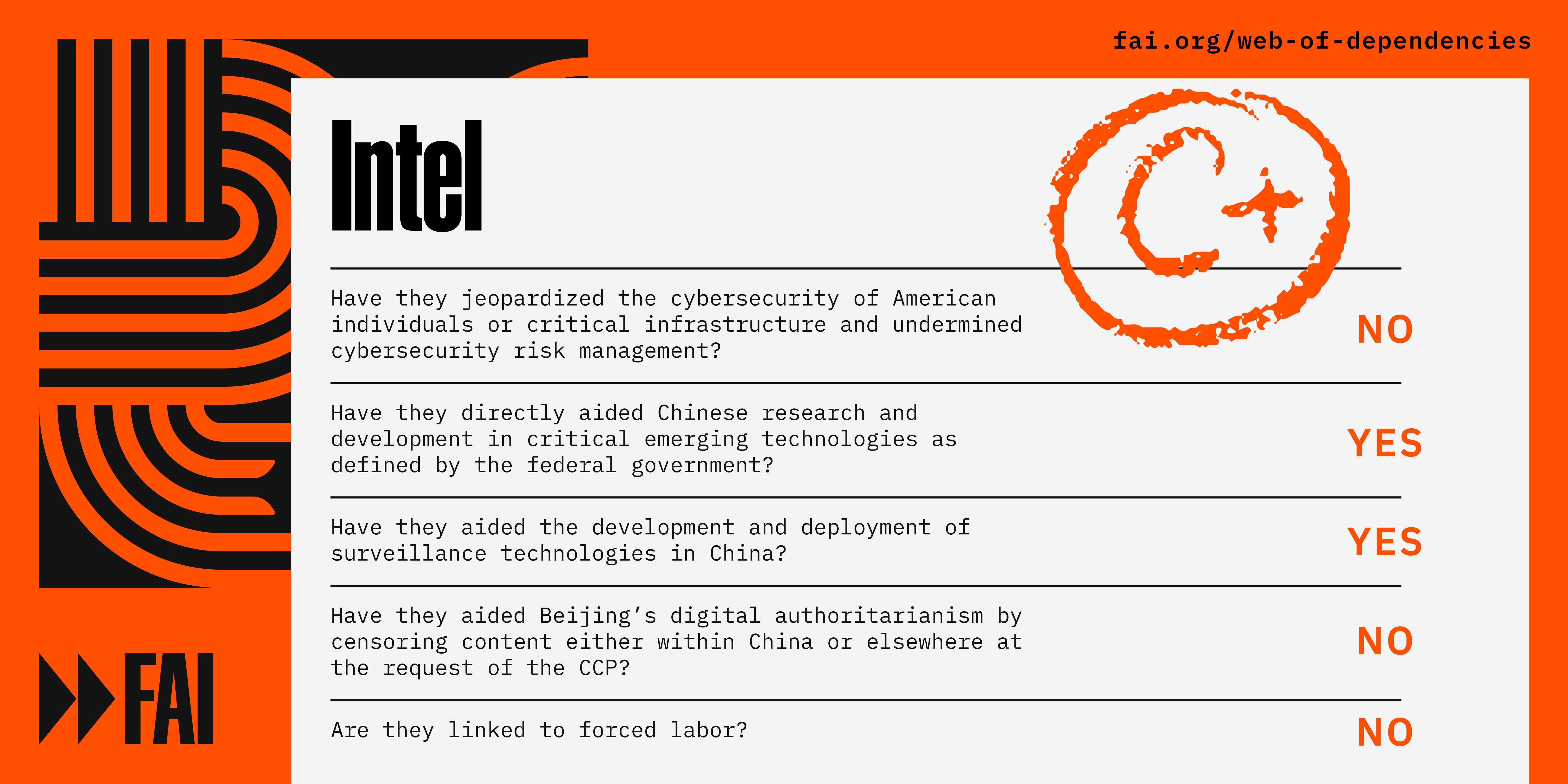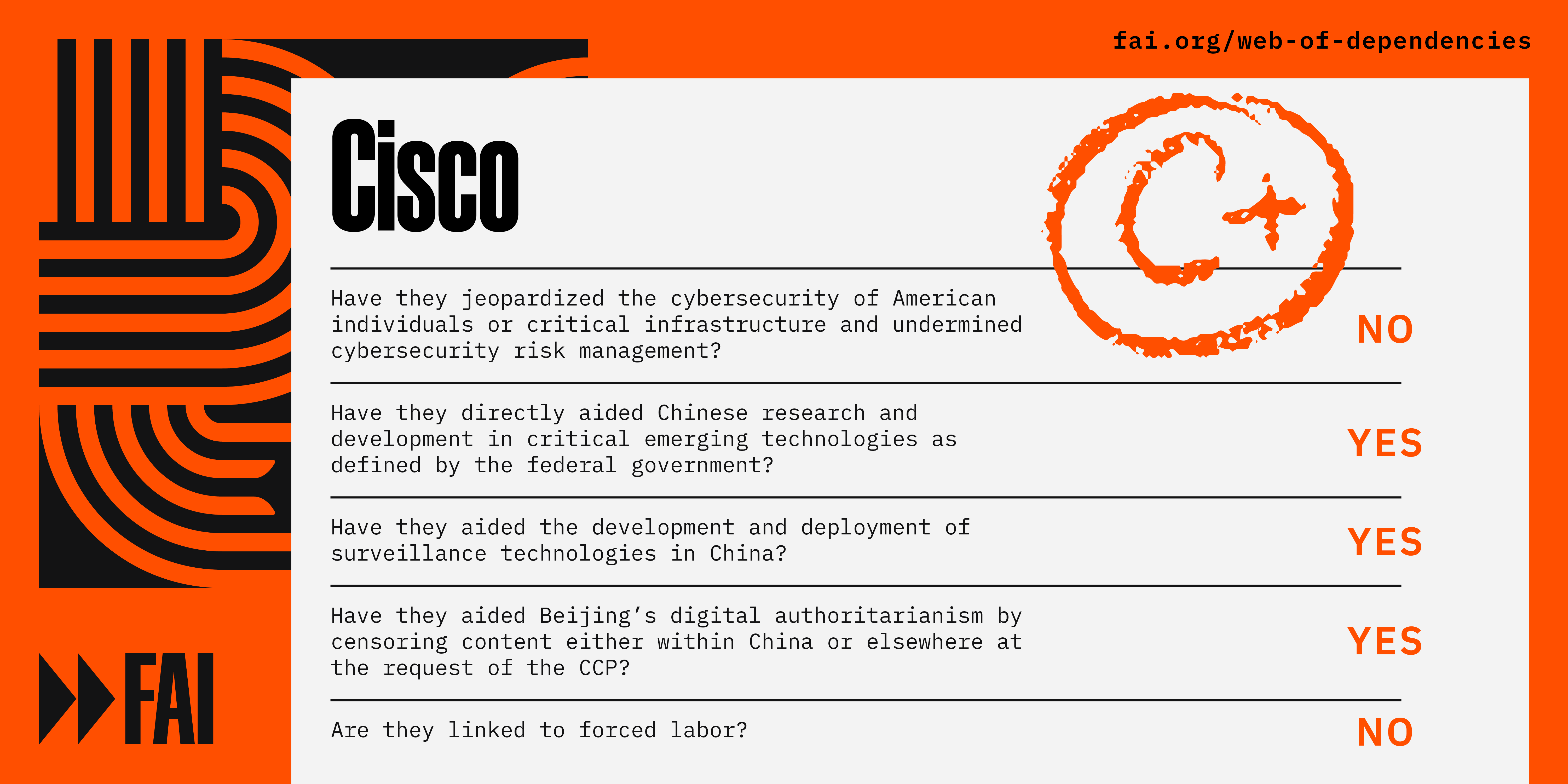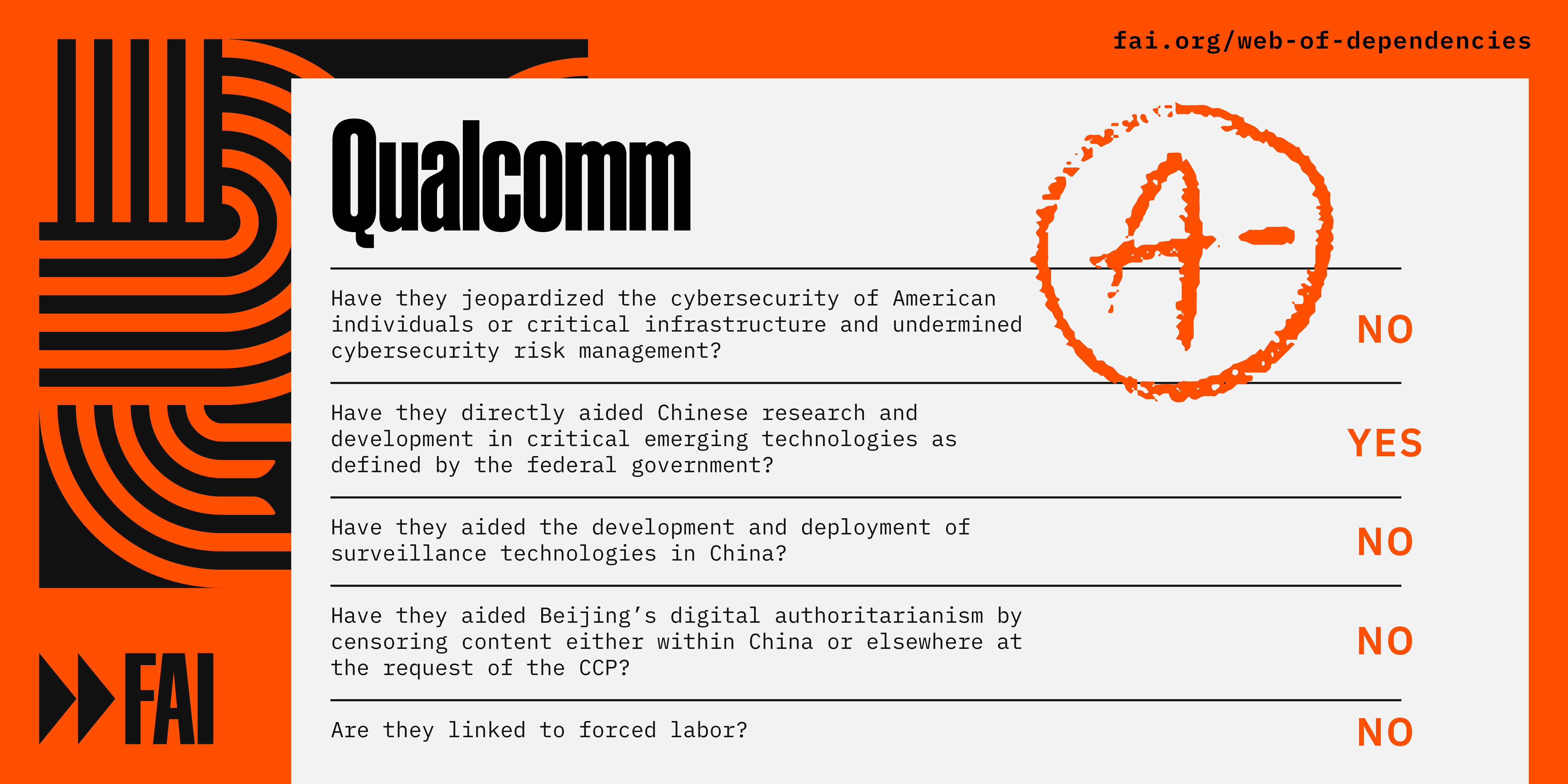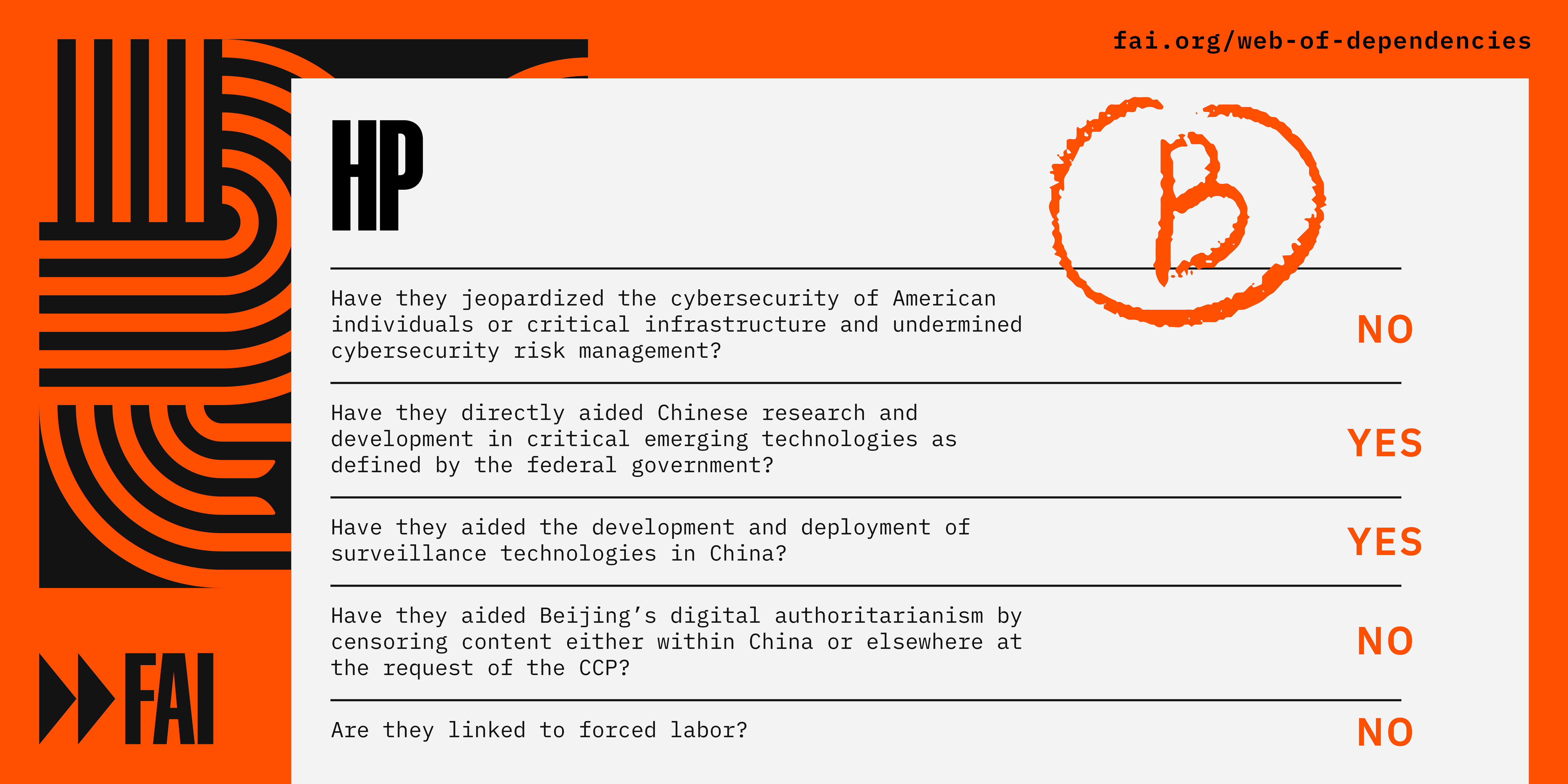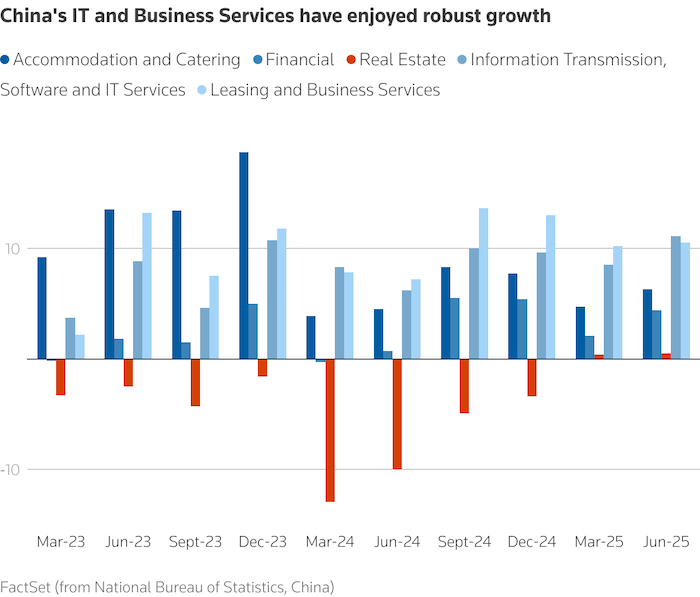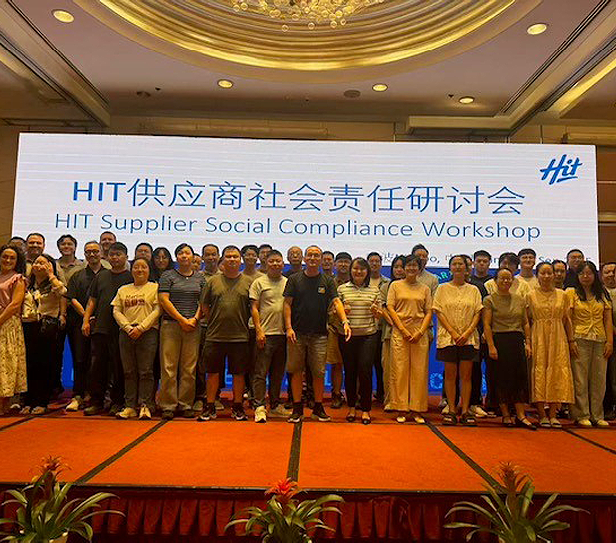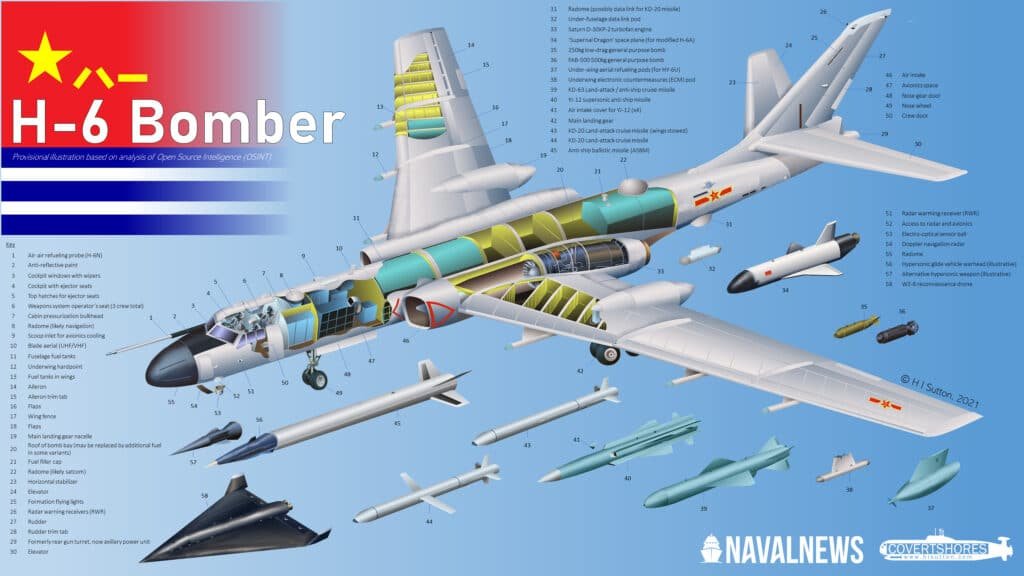The United States has formally recognized the challenge posed by China’s use of technology for authoritarian control, enacting policies to curb Beijing’s human rights abuses and to protect U.S. national security. Yet American technology companies with deep ties to the federal government, including some of the nation’s largest and most influential firms, have continued to operate in China in ways that conflict with U.S. strategic interests and values. This report examines the conduct of these companies—Apple, Amazon, Cisco, Google, HP, IBM, Intel, Meta, Microsoft, Oracle, and Qualcomm—in the People’s Republic of China and documents how their actions are misaligned with America’s national security strategy and human rights policy. Drawing on open-source information, this report is organized flowing down the tech stack: online edge platforms, operating systems, cloud hosting and data services, and hardware. The goal is to illuminate broad patterns of behavior and ongoing misalignments between corporate actions by entities that are deeply intertwined with the U.S. national policy.
The report finds that many leading U.S. tech companies, despite having received significant federal funding and working with the American national security apparatus, have contributed to China’s techno-authoritarian agenda. In particular, multiple firms have engaged in practices that directly conflict with U.S. policy goals. Several companies have complied with China’s censorship and surveillance demands, with some even helping develop tools or platforms that reinforce Beijing’s digital authoritarian regime. Other firms have transferred advanced technology and know-how to Chinese entities linked to the military or security services through research partnerships, investments, or the sharing of intellectual property, thereby aiding China’s development of critical emerging technologies. Still others remain entwined in supply chains tainted by forced labor and other human rights abuses, continuing to source products or components from entities implicated in coercive labor programs despite clear U.S. prohibitions and warnings. Taken together, these behaviors highlight a persistent misalignment between the actions of American tech firms and the broader strategic and moral objectives of the United States.
This misalignment is not merely a series of isolated corporate lapses, but a symptom of deeper structural problems. Commercial entanglement with China has introduced significant vulnerabilities for the U.S. and conflicts with America’s foreign policy. Because these companies have become so integrated into China’s market and industrial base, they face intense pressure to conform to Beijing’s dictates in order to maintain access. In the process, American firms risk becoming conduits for authoritarian influence and espionage. Deep integration of supply chains and technologies means that economic shocks in China, or coercive leverage by the CCP, can directly affect U.S. economic and national security. Moreover, operating under Chinese regulations has sometimes required concessions such as code inspections or encryption compromises that undermine Americans’ cybersecurity, creating potential backdoors and vulnerabilities that hostile actors can exploit. In short, years of unfettered engagement have built a web of dependencies that now complicates U.S. efforts to protect and promote its interests and values.
This report provides a factual foundation and highlights critical questions for stakeholders and policymakers. The intention of this report is to inform oversight and encourage a reexamination of the status quo. American policymakers and the public must grapple with how to realign corporate behavior with national imperatives in this new era of geopolitical competition. By bringing to light the extent of U.S. tech companies’ complicity in China’s techno-authoritarian agenda, the report aims to contribute to ongoing debates over how the United States can better secure its long-term technological leadership and uphold its values in the face of a rising authoritarian power. Ultimately, this study affirms a guiding principle: American technology and public resources should not subsidize or strengthen an authoritarian regime’s repressive capabilities.
Company Scorecards
Online Edge Platforms
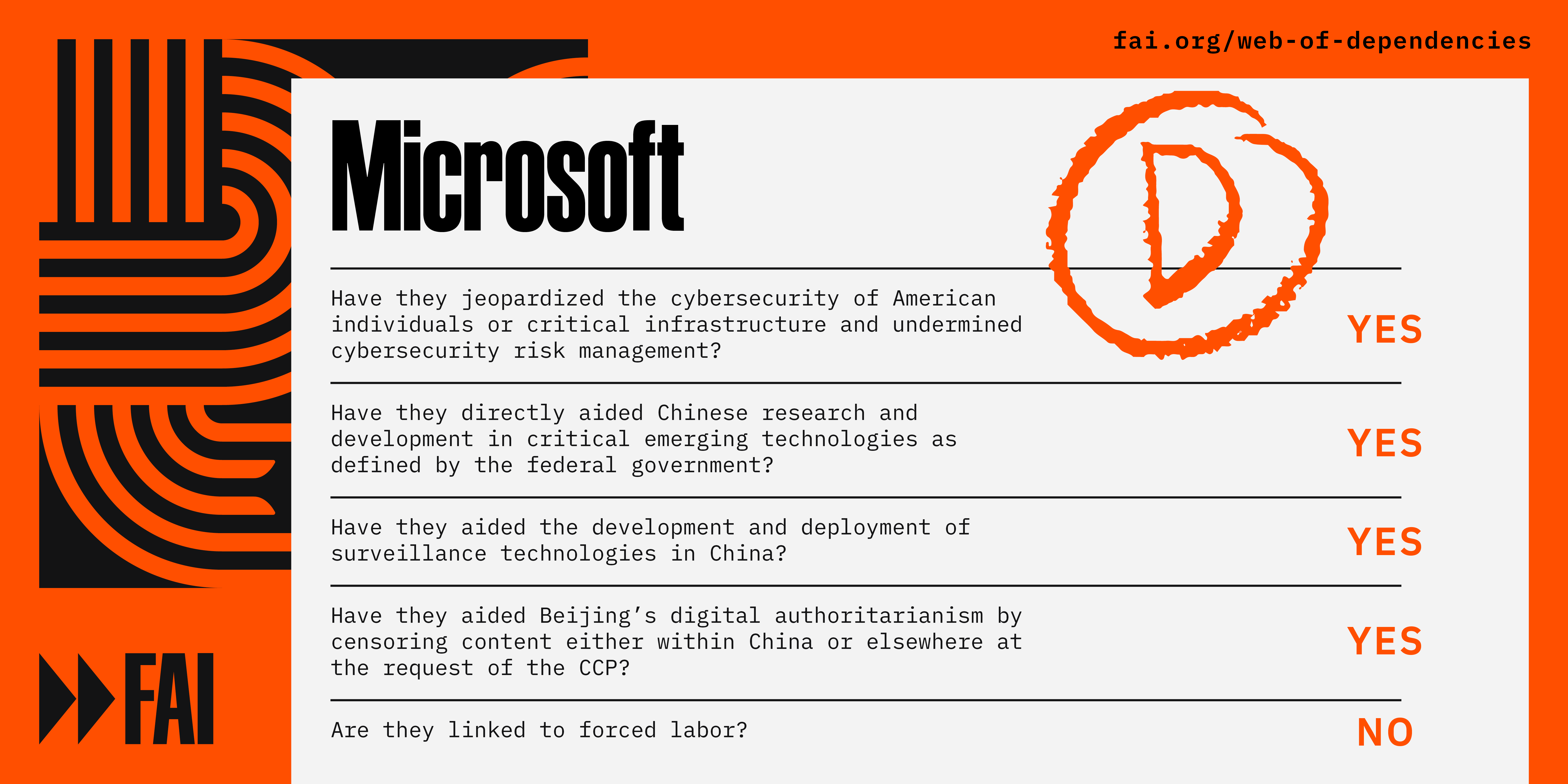
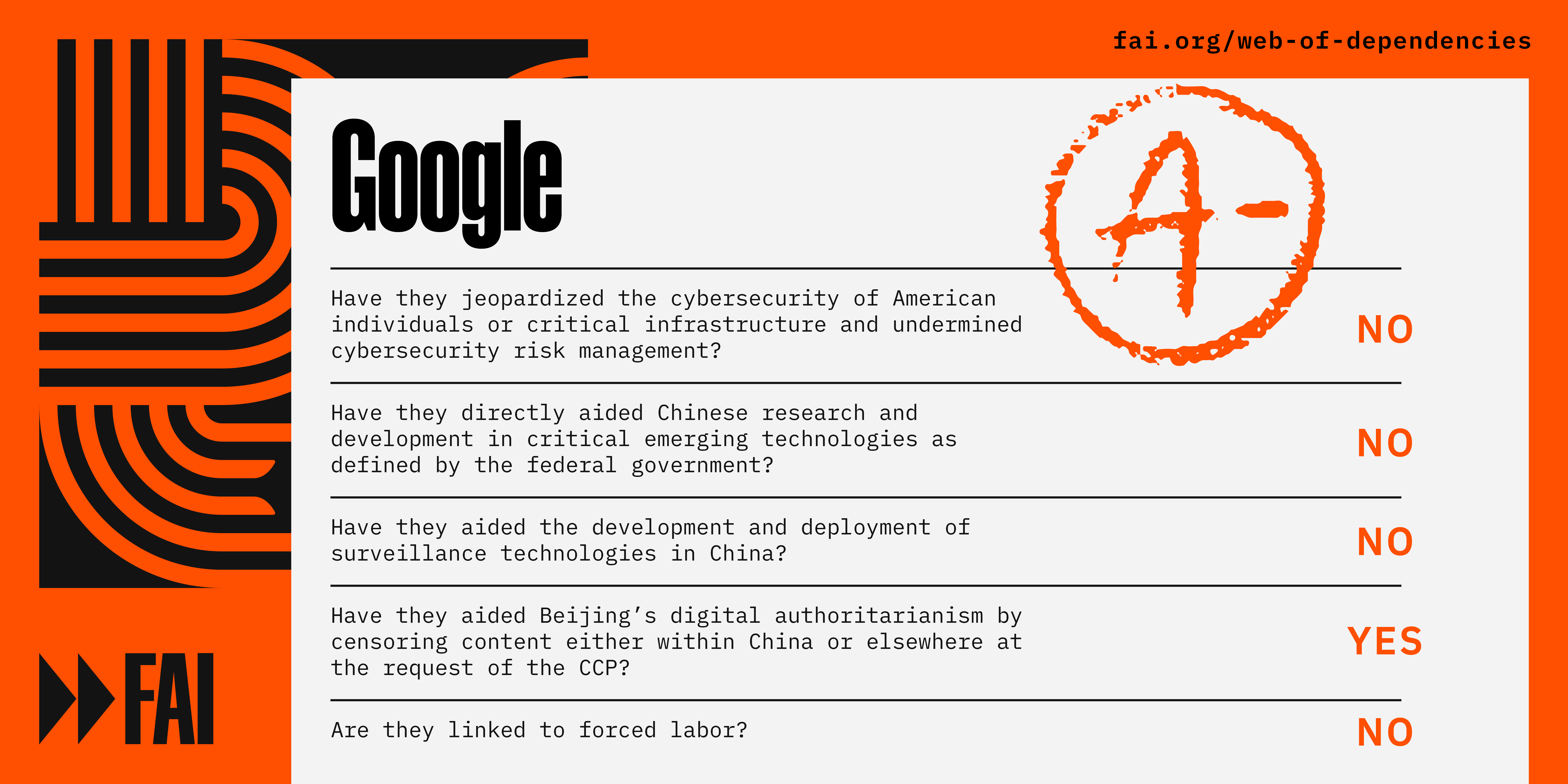
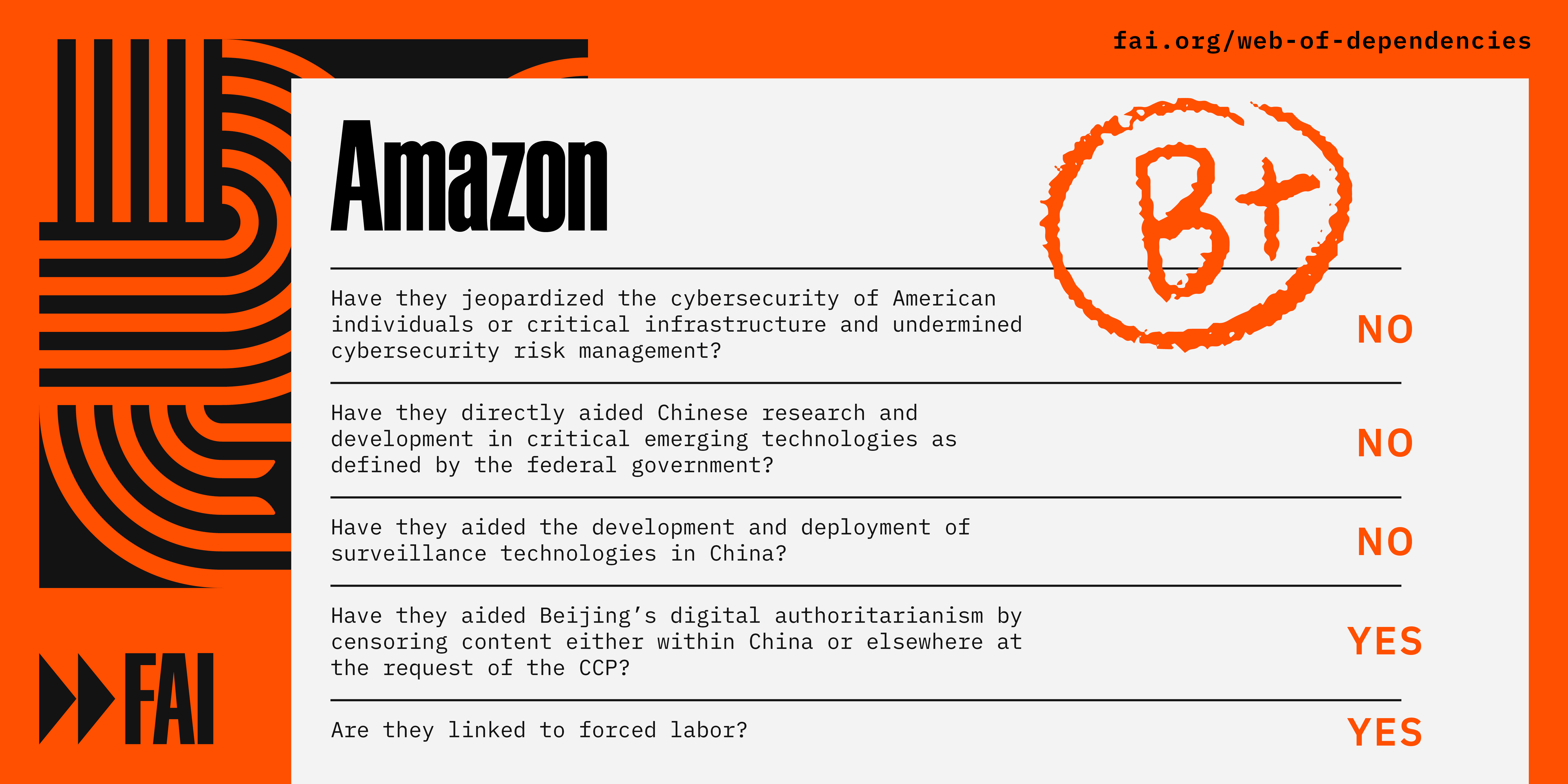
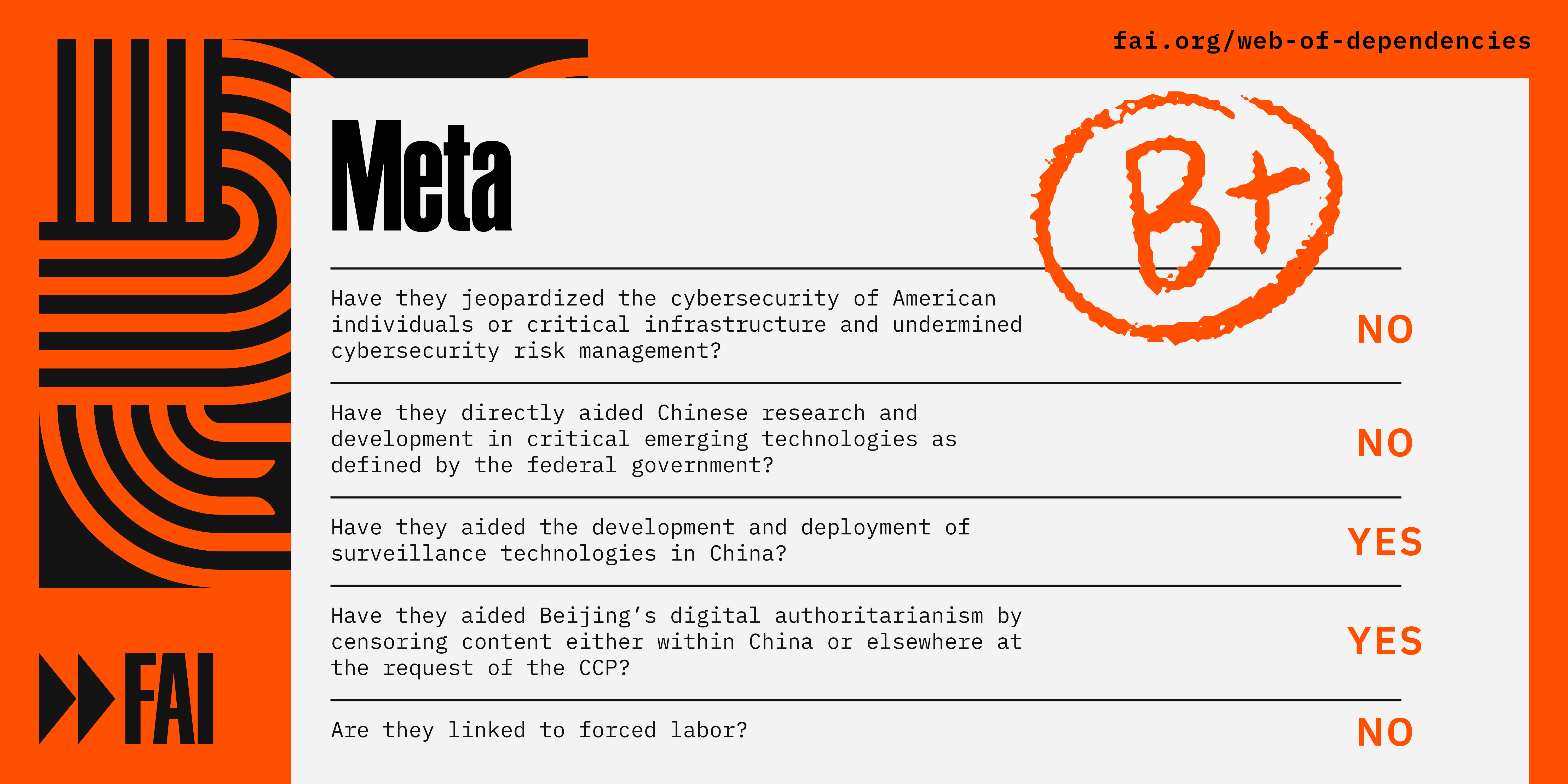
Operating Systems
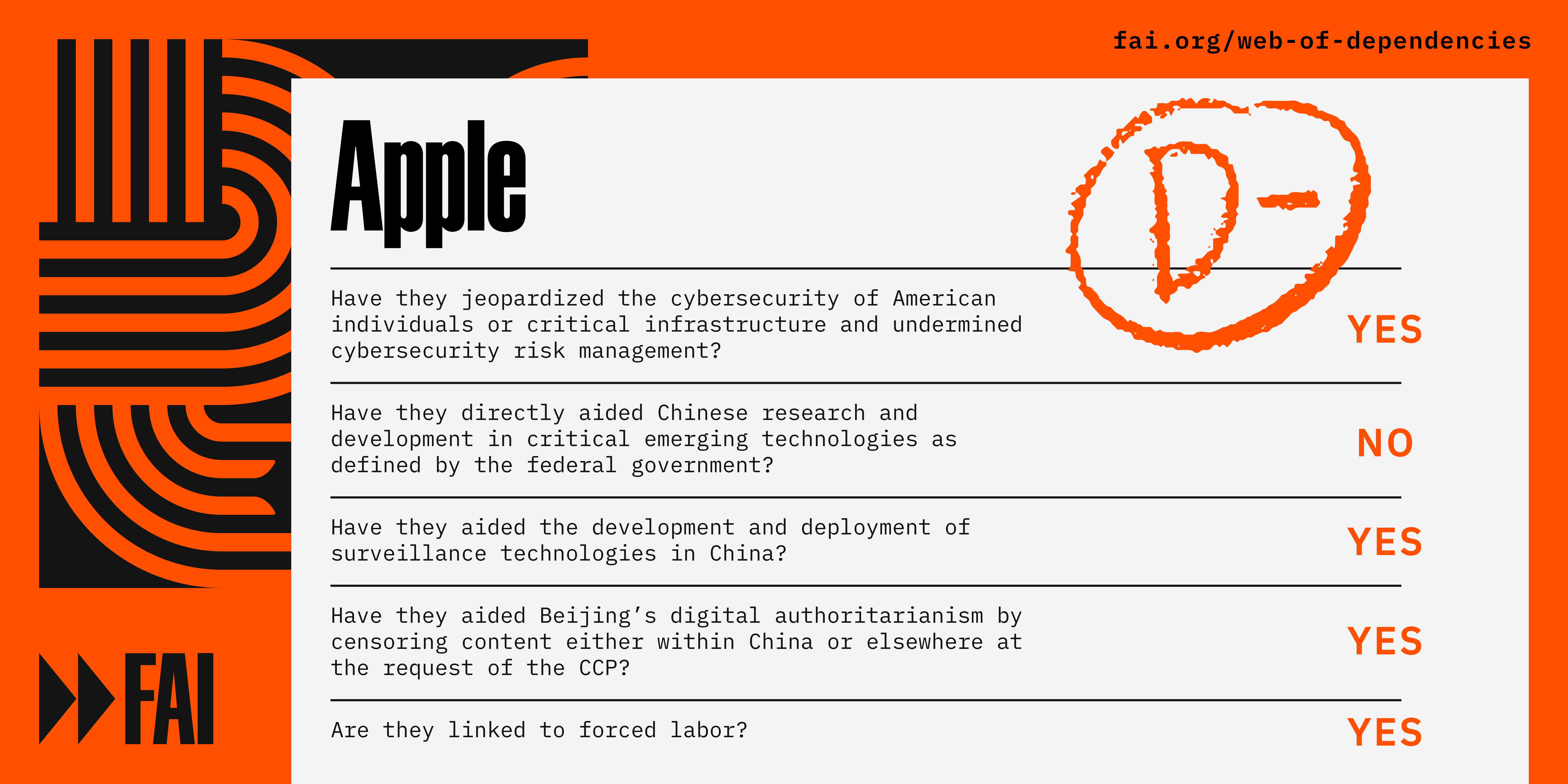
Cloud Hosting and Data Services
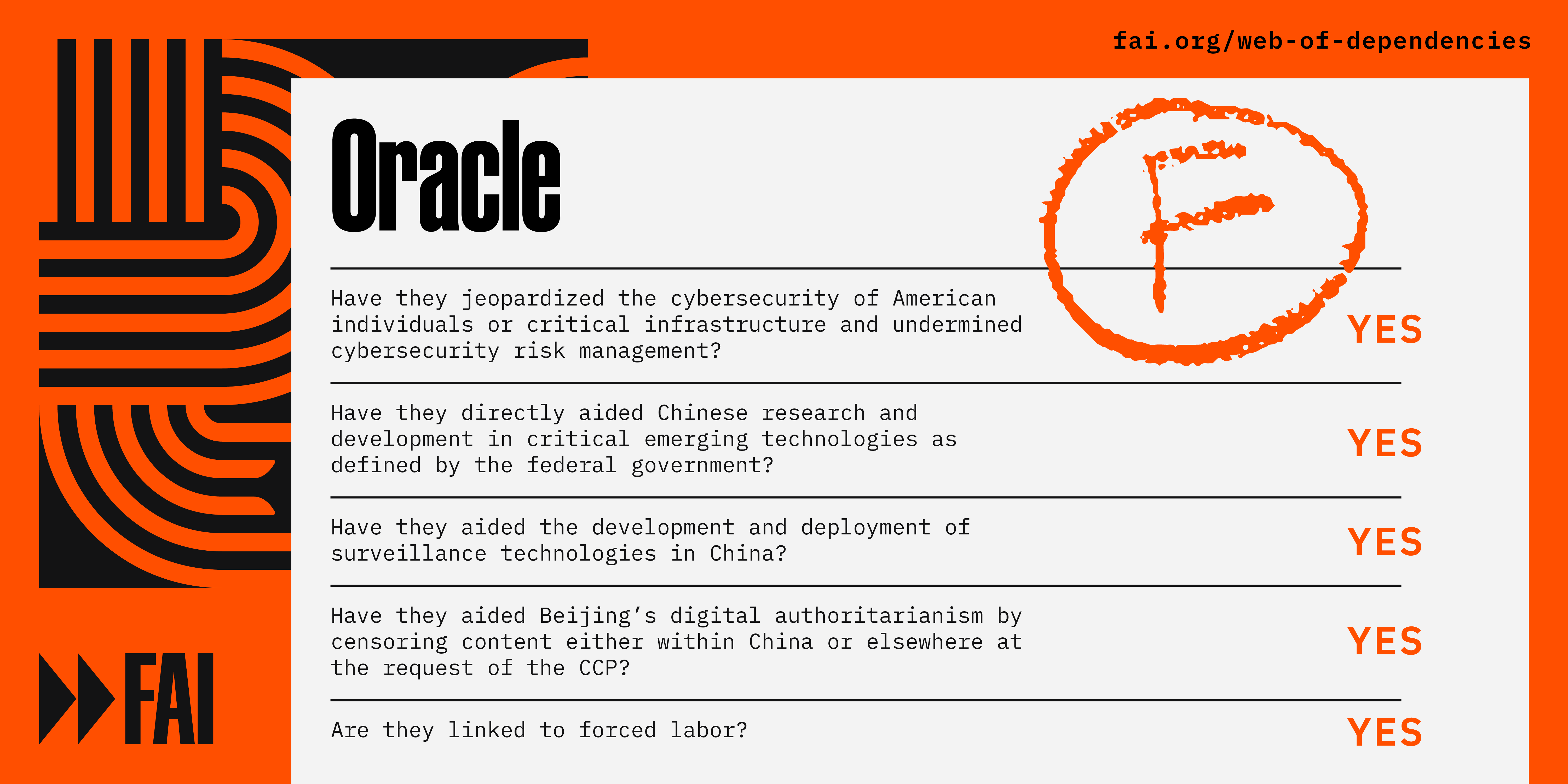
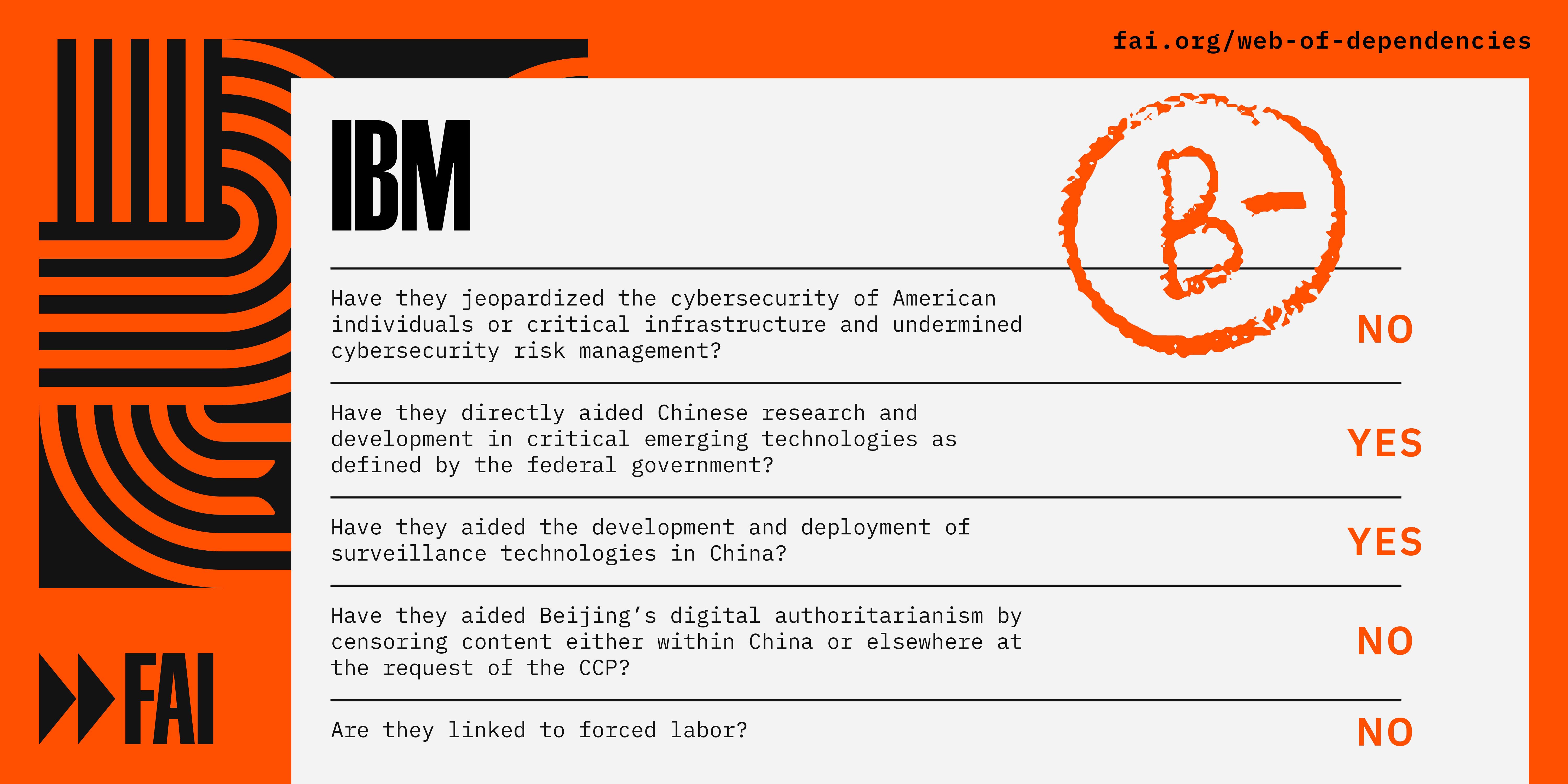
Hardware
